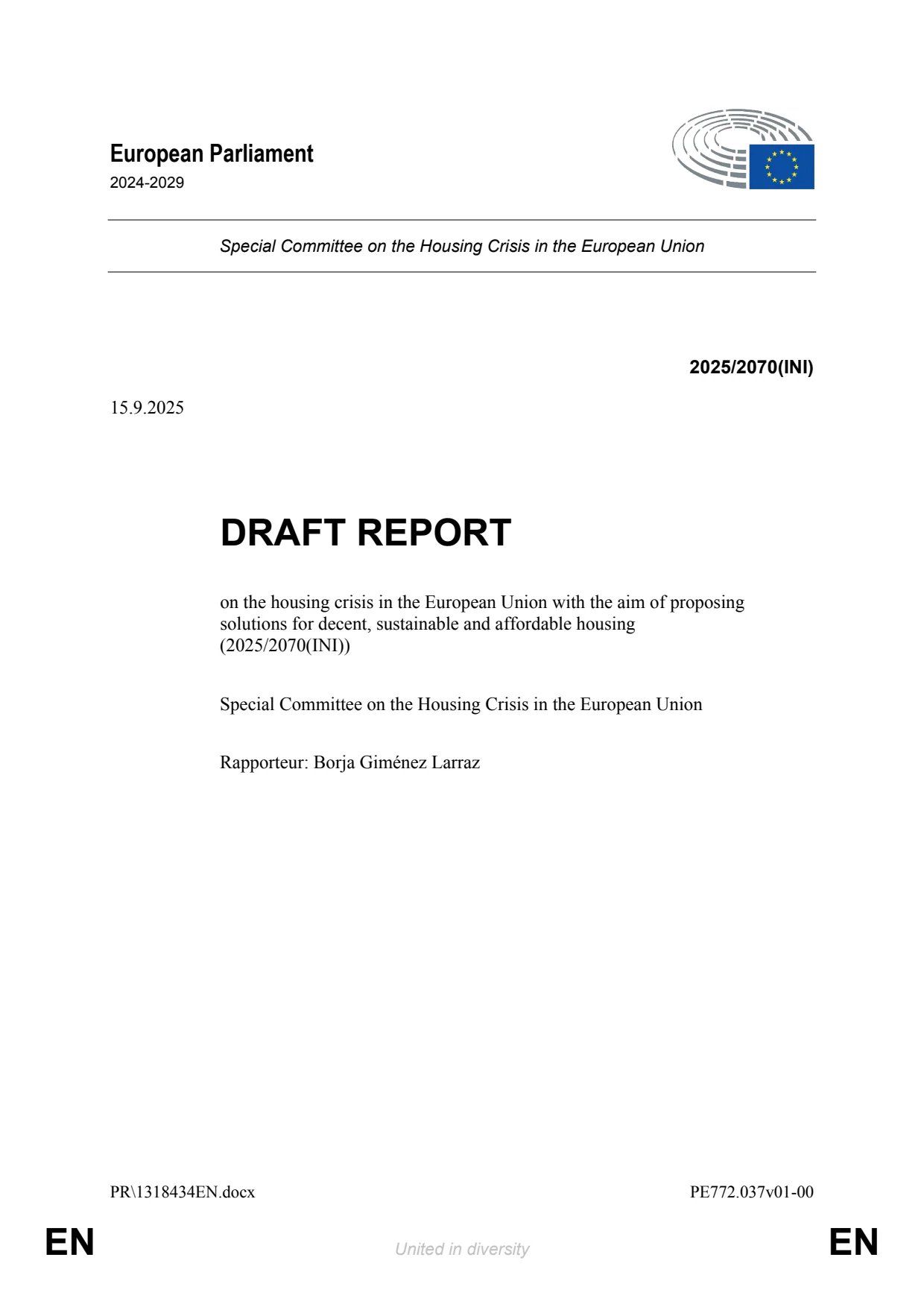AI-Generated Summary
Context of the Report
The draft report on the housing crisis in the European Union was created by the Special Committee on the Housing Crisis, which operates within the European Parliament. This committee is tasked with addressing the significant challenges posed by housing unaffordability, particularly as it impacts low- and middle-income families. The rapporteur for this report is Borja Giménez Larraz, who aims to propose solutions for decent, sustainable, and affordable housing across the EU.
Rising Housing Costs
Over the past eight years, housing prices in the EU have surged by an average of 48%, while rents have increased by 18%. This situation has made housing unaffordable for many, often consuming up to 40% of a household's monthly income. Young people are particularly affected, facing difficulties in moving out of their parental homes, which further complicates their ability to establish independent lives. In 2023, the average age for leaving home was 26.3 years.
The Supply-Demand Imbalance
The report identifies a critical shortage of housing units, exacerbated by a limited supply of both private and public housing. Construction activity has declined, with building permits falling by 14.6% for floor area and 19.6% for the number of dwellings in 2023. The report emphasizes that insufficient construction and underinvestment over the past decades are key drivers of this crisis, requiring immediate measures to increase housing supply.
Regulatory Challenges
Complex and lengthy urban planning processes, often taking over a decade, hinder the development of new housing. The report calls for a reduction in regulatory burdens and the simplification of permitting procedures to facilitate faster construction. Additionally, the high tax burden on housing construction and rising material costs have contributed to the overall affordability crisis.
Role of the EU and Member States
While housing policy remains primarily a national competence, the report stresses the importance of a multi-level governance approach, recognizing the shared challenges across Member States. Local authorities play a key role in identifying housing needs and developing targeted solutions. The report advocates for empowering these local bodies to manage EU housing funds effectively.
Innovative Solutions
The report encourages investment in innovation within the housing sector, focusing on improving the quality and efficiency of construction. It suggests that digitalization and new construction methods could enhance productivity while reducing costs. The report also highlights the importance of protecting property rights to ensure stability and investor confidence.
Mobilizing Private Investment
Attracting private investment is deemed essential to address the liquidity shortage in the housing market. The report calls for conditions that facilitate private capital flow into housing projects, particularly for low- and middle-income households. Public and private cooperation is encouraged to leverage expertise and resources for affordable housing initiatives.
Supporting Young People and Families
The report emphasizes the need for tailored housing programs to assist young people and families, particularly those in vulnerable situations. It suggests measures such as low-interest loans for first-time buyers and tax incentives for young buyers. Additionally, it calls for better access to rental housing solutions, especially for students and essential workers.
Data Collection and Analysis
Improving data collection and analysis on housing needs and conditions across the EU is crucial for effective policymaking. The report advocates for the establishment of a dedicated EU digital platform for real-time housing data, which would facilitate transparency and accountability in addressing housing challenges. In summary, the report provides a comprehensive overview of the housing crisis in the European Union, outlining the challenges and proposing actionable solutions aimed at achieving decent, sustainable, and affordable housing for all citizens.

